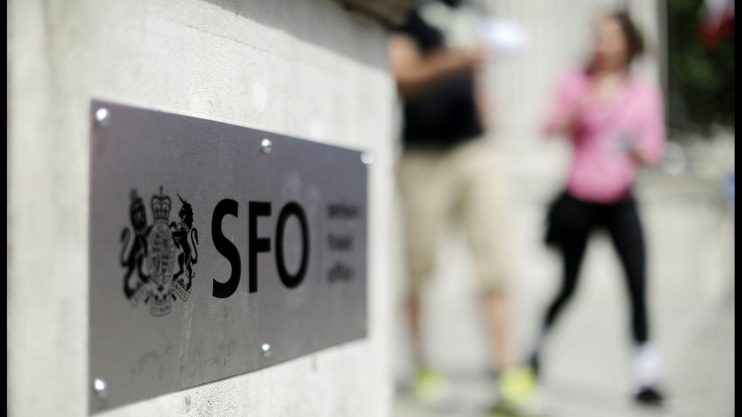SFO outgunned by UK firms that spend millions more on lawyers to ‘buy impunity’

Companies under investigation by the Serious Fraud Office have spent up to ten times more than the fraudbusters on legal and investigation fees, causing major corruption cases to crash and burn, the Bureau of Investigative Journalism has found.
The UK’s only complex fraud agency’s fight against economic crime is undermined by its lack of funding, an exodus of its senior officials who join the law firms representing the very companies it is investigating, and a perceived hesitation in prosecuting companies and business executives, the Bureau has found.
The SFO has generated about £1.3bn in fines and penalties against large businesses in the past five years, and recently secured significant bribery convictions against oil field services company Petrofac and Airbus defence subsidiary GPT Special Project Management.
But it’s the high-profile case closures and acquittals of executives that stand out. Most recently, the SFO closed its probe into British American Tobacco (BAT) in January without charge, claiming there was not enough evidence to make prosecutions – after a three year case and 18,000 hours of investigating.
But in September, an investigation by the Bureau and the BBC’s Panorama found evidence that BAT paid informants for information on its competitors, and negotiated a bribe of up to $500,000 for former Zimbabwean party leader Mugabe to have three men released from prison.
The SFO – which relies on an annual budget of £52m – has dropped 30 probes since August 2018, when the current director Lisa Osofsky assumed office. Three of those were two days in October. In the five years before Osofsky was appointed, the agency dropped a total of 13 cases.
“It has been clear for some time that there’s a chronic weakness in the enforcement of serious fraud in the UK,” said shadow foreign secretary Lisa Nandy.
“The odds are stacked in favour of those who break the rules, rather than those who make them.”
Conservative MP Robert Buckland, the former lord chancellor and justice secretary, said the “imbalance in arms” between defendants and the SFO must be tackled. “A situation where one side has unlimited resources cannot be fair,” he said.
Another example of a high-profile investigation that came to nothing was the SFO’s five-year investigation into pharma giant GlaxoSmithKline, which was closed in 2019.
The probe entailed 58,000 hours of investigating, 84 interviews and nearly 300 “Section 2” requests, which compel the subject to hand over relevant material and information. Despite the investigation costing £7.5m, however, it did not yield a single prosecution.
“There is a high bar for prosecutors, including the SFO, to charge individuals or companies with a criminal offence,” the SFO said.
“Apparent evidence of wrongdoing is not the same as admissible evidence that will support a realistic prospect of a conviction.”
Some of the SFO’s most high-profile cases have ended in a “deferred prosecution” agreement with the company being investigated, where it avoids trial by paying a hefty fine, admitting to wrongdoing and vowing to comply with the law in future.
One such example came this July, when British engineering company Amec Foster Wheeler paid out £103m to the SFO after admitting to having used corrupt agents in the oil and gas sector – including £3.4m to cover the SFO’s costs for the four year investigation. Meanwhile, Amec Foster Wheeler’s parent company Wood Group spent £8m on legal costs to cover its back in one year alone, according to its annual report.
“The UK often talks a good talk about being tough on financial crime, yet too often law enforcement agencies are completely outgunned when facing suspects with deep pockets,” said Steve Goodrich, head of research and investigations at Transparency International UK, adding that it can be “far too easy for oligarchs and kleptocrats to buy impunity by burying prosecutors in costs”.